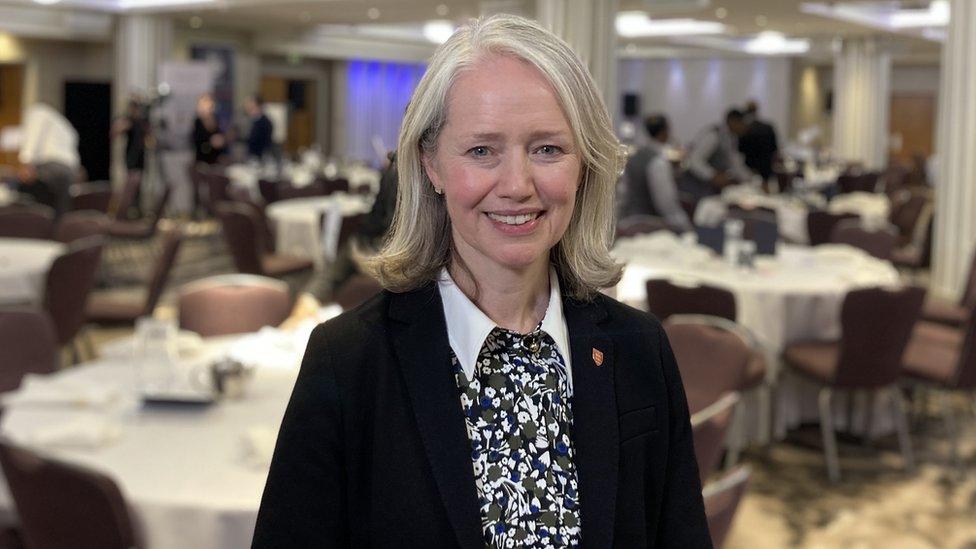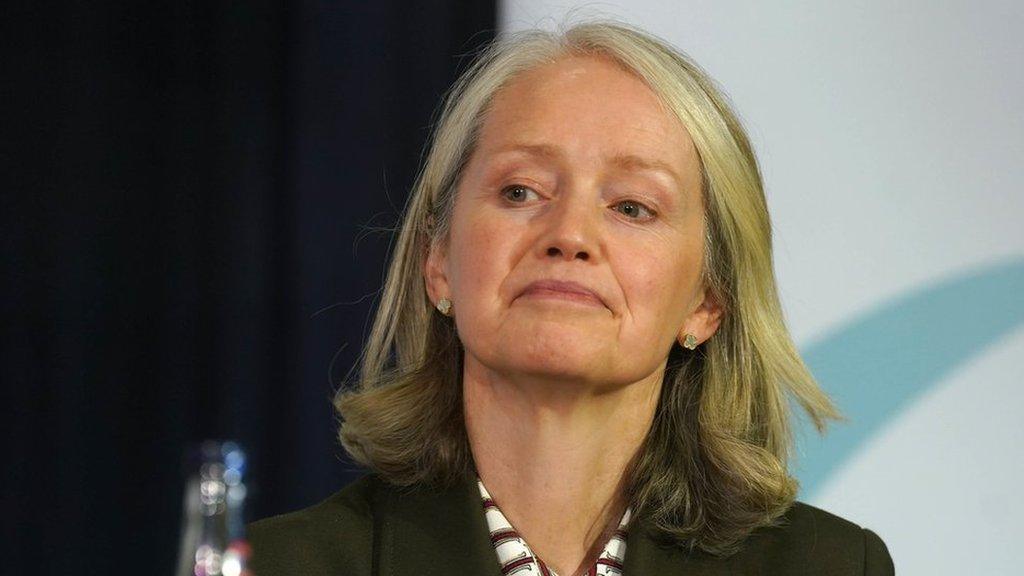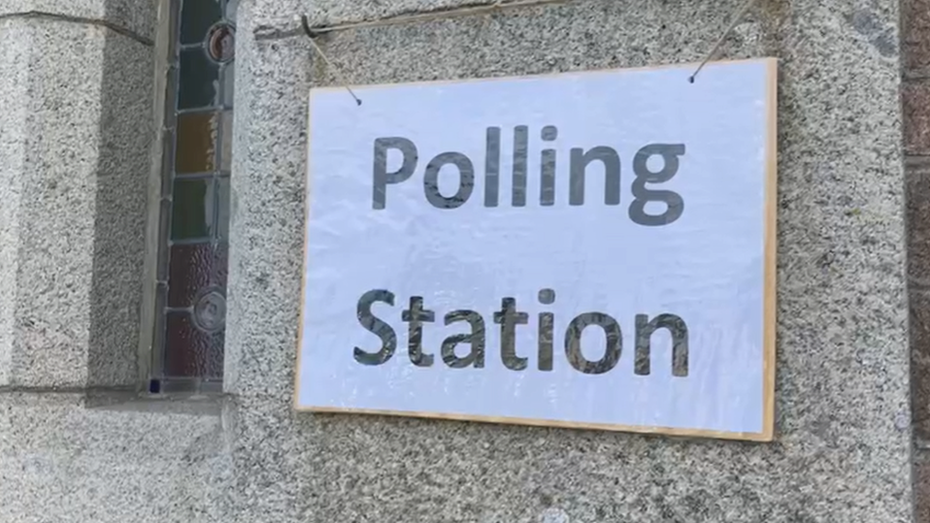What caused the fall of Jersey's chief minister?
- Published

Jersey's first female chief minister Kristina Moore lost her role following a vote of no confidence on Tuesday
Jersey's chief minister was ousted from her position after a late night vote at the States Assembly on Tuesday.
Deputy Kristina Moore lost the vote of no confidence by 27 votes to 22 - meaning she will be replaced at the head of Jersey's government.
Afterwards she told reporters "it should never have come to this".
In the days leading up to the vote, it had become clear that the final result was going to be close.
Constable Andy Jehan - who before his resignation from government just over seven weeks ago was one of Ms Moore's closest allies - announced over the weekend he would back calls for change.
Then, murmurings of discontent from several other backbench politicians were followed on the eve of the debate by confirmation that Reform Jersey's 10 elected members would also vote to bring the government down.
But it was not until Constable Richard Vibert announced several hours into the debate that he would be resigning as an assistant minister and voting for the chief minister to lose her job, that it became apparent Ms Moore did not have enough support to survive.
Ms Moore is the politician who received more votes than any other deputy at the 2022 election, and then enjoyed a political honeymoon period which appeared to last for more than six months.
So what went wrong for her?
While States Members have cited a number of reasons for backing the vote of no confidence, in a nutshell, many simply did not feel she was doing a good enough job as the island's political leader.
In their minds, concerns over the direction Jersey appeared to be heading in, the manner in which decisions were being made, claims of low morale within the States chamber and a perceived lack of focus on certain key issues, all contributed to a sense that Ms Moore was not the right person to see the island through challenging times.
Some have said that beyond high-level statements, they remained unclear about what exactly she was hoping to achieve.
Others have also admitted that they hold negative views of some of her closest confidantes, and that this had influenced their votes.

Kristina Moore said after the vote: "It never should have come to this"
Emerging from the States chamber after the vote amid a flurry of camera flashes, Ms Moore said it had been an "appalling day".
With tears in her eyes, she expressed regret that she had allowed Deputy Tom Binet to remain a member of her government, even after he had criticised her in public, telling gathered reporters that she "should have sacked the man a long, long time ago."
Ms Moore's supporters had earlier urged States members to focus on policies, rather than personalities, and pointed out that it had only been a month since a majority of those in the assembly had backed the 2024 budget.
One by one, they expressed their confidence in her as the island's chief minister, describing her variably as a person who listens, a person who would reflect on the criticisms levelled at her, a person who had put together the most diverse and progressive government in Jersey's recent history and a person who had achieved a great deal in her 18 months in charge.
They added that removing her and the rest of the council of ministers from office would result in disruption, upheaval and instability, and cause government projects to grind to a halt.
Those final claims have been disputed by people on the other side of the debate, who have suggested that with a clean slate, a new government could achieve even more.
But in the short-term at least, the success of the vote of no confidence creates uncertainty.
What next?
Nobody yet knows who will be Jersey's next chief minister, nor what direction they will take.
What, therefore, might become of the plans for a new hospital?
What about the proposals for a wind farm off the island's south-west coast?
And what will happen next in the ongoing row over teachers' pay?
Each of the candidates for the top job will have a different view on these issues - and on every other item of government business.
Once a new council of ministers is in place - by the end of January - its members will need to agree their priorities before they can begin to take meaningful actions.
Some fear that process alone could last a number of weeks, if not longer.
And perhaps most crucially - at least from a political perspective - in order to truly make progress, consensus will be required.
Whoever replaces the current government will need to unify an assembly which has been described as having a "broken" atmosphere.
At a time of global instability, and following a debate which has highlighted and widened divisions amongst Jersey's States members, few would disagree that Ms Moore's successor will have quite a job on their hands.

Follow BBC Jersey on X (formerly Twitter), external and Facebook, external. Send your story ideas to channel.islands@bbc.co.uk, external.
- Published17 January 2024

- Published15 January 2024

- Published14 December 2023
- Published26 November 2023
- Published11 April 2023

- Published23 June 2022
